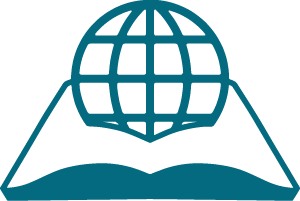About submitting to the Atlas
Thank you for your interest in contributing to the EdTech Open Atlas!
This is a crowdsourced public database, so we ask for your assistance in following a few guidelines to keep the quality high and the information robust for everyone who may want to use it!
- Please only post projects related to educational technology.
- For this database to remain useful, it is critical that the listed projects are all focused on education or learning delivered as their first priority. Please do not post information for any other products and services outside of this.
- As for what the strict definition of “education or learning” or “technology” might be, you can use your own judgement. However you define it, providing it must be the primary purpose of the project. For instance, if an app whose primary function is to provide financial services happens to include some learning resources, it is still not a good fit for listing on this site. On the other hand, if a platform whose primary purpose is to provide educational video content also happens to advertise outside products, it is permissible to list it on the Atlas.
- Please make all entries in English.
- For now, we are only able to support and maintain English language information on the Atlas website. Many of the entries on the Atlas will direct to projects and associated website that are not in English, which is not an issue, and encouraged. If you have available resources to support adding other languages to the Edtech Open Atlas website, please reach out at edtechopenatlas@handshake.fyi.
- Please only enter information you are sure is correct.
- If you are not sure about something, please double check. When in doubt, it is better to enter nothing than to enter information that you are unsure about.
- Do not select the location option for a project as “global” as a substitute for looking for the actual location of the headquarters. This particular piece of information is very important for the visual integrity of the map.
- Please give credit where credit is due.
- Make sure that you are attributing projects to the correct teams or founders, and please do not claim credit for anything that isn’t yours!
- Post only publicly accessible information.
- Never post any information that you aren’t sure is already publicly accessible. Do not post private, confidential, or classified information under any circumstances.
- Do not post any individual’s personal information.
- Only post information about organizations or projects. Only include contact information for individuals if their contact information is already hosted on a public webpage associated directly with the relevant project or organization.
- You are responsible for any listing information you add.
- There isn’t anyone whose job it is to update the listing if the information changes, or to remove it if it goes out of date. Help us out by letting us directly know about changes we should make to existing listings, and remembering to notify us about changes to your own listings whenever possible.
- Let us know if the Atlas helps you find something useful or fun!
- We built this because we want it to be useful to people, so if you have a story about something you found, let us know! It will make our day and help us understand how people are using the Atlas.
- Likewise, if there is a feature you don’t see here that would be helpful for your work, also let us know! We can’t promise that we’ll be able to add it, but the more we know about what people need from the Atlas, the more we can make sure any resources toward updating or expanding it would go to the right place.
